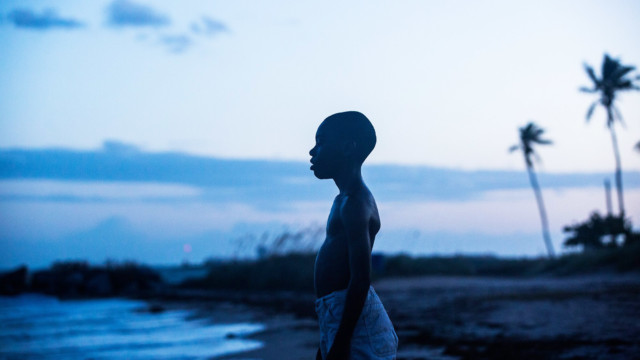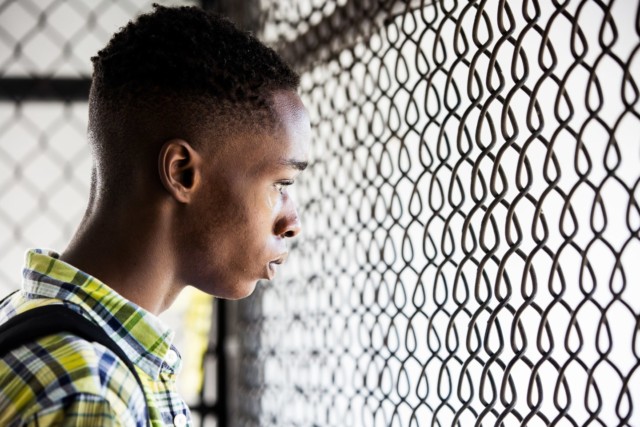The scene shows a forbidding, darkened path that leads to the beach. The palm trees before it are swaying in the wind. The yellow and green lights heighten the mystery of that path and in the background is the moon, seductive in its glow. Black is stepping out if his car and he looks at the path longingly, remembering his first loving embrace and kiss at the beach. It also encapsulates the feel of the movie, a lush love story wrapped in a coming of age narrative.
The film ‘Moonlight’ is about a journey from an unforgiving childhood to a conflicted adult life. It’s divided into three parts, each focusing on different stages of life for the main character.
The movie begins with Little, the precocious child who’s been cast out by most of his classmates because of his perceived strangeness. The middle section is devoted to his teenage years who’s known as Chiron, and then finally Black, the name given to him by his first lover.
Ahmad Coo is a producer and copy editor for the Global Business America show on CCTV America. His analysis represents his views alone.
I’ve seen a lot of coming of age stories in recent years, but Moonlight is probably the most memorable and unique one I’ve seen so far. It’s not a film about identity and sexuality politics, nor is it about race.
Surprisingly, the film isn’t about African American identity. But some may have been tempted to classify it as such because the film’s cast is entirely black. You don’t even notice it – a testament to the director’s storytelling skills. He has the audience focusing solely on the main character’s transformation.
It’s probably also one of the most romantic films I’ve ever watched. Never have I seen a truer sense of love’s first blush on screen, the discovery of each other’s bodies and the passion exchanged between two people falling madly in love with each other. It vaguely reminds me of those romantic coming of age stories from the 80s like ‘Pretty in Pink’ (though they are completely different in terms of tone).
This is the first Barry Jenkins film I’ve seen, but if this is as good as his other films – I’m hooked. He’s particularly adept at capturing that longing on screen. All three characters have their moments of beholding their crushes, and somehow the director coaxes the look of true desire on the faces of his actors. Everyone who’s ever been in love, or infatuated with anyone, can attest the bewildering assortment of emotions involved. That’s all present in ‘Moonlight.’
But the film’s overall feel is bleak, especially with Jenkins’ choice of cinematography. The colors are vivid but threatening, and there’s always a sense of danger in the air – as if the protagonists are on the verge of breaking down or getting attacked. He likes following the characters with the camera. Besides the beautiful nights scenes on the beach, he makes Miami look pretty unsavory.
The film is also buttressed by amazing performances from the cast, first led by Maharshala Ali, the actor who plays Remy in ‘House of Cards.’ He plays a drug dealer, who becomes a father figure for the main character. I’ve never really seen him play to such a range of emotions without overacting. For someone who spends most of his time brooding on television shows, he comes up big on the silver screen. It’s very rare to find someone to show such genuine vulnerability.
The three actors, Ashton Sanders, Trevante Rhodes, and Alex Hibbert) who play the main character at different stages of his life give ‘Moonlight’ its emotional impact. Think of the main character in Richard Linklater’s ‘Boyhood,’ but played by three different people. But the show is stolen by young Alex Hibbert, who plays Little in the first part of three movement film. His vulnerability will break your heart, especially when he starts wrestling with his own sexuality.
Our lives are defined by the choices we make in life and for better or worse, it determines our futures as well. In an age where it’s increasingly more difficult to carve out a life that one can be proud of, every misstep can be disastrous. ‘Moonlight’s’ protagonist’s choices are starker, more harrowing and dramatic.
One of those darker choices has Chiron/Black taking an unexpected life path in adulthood. I won’t go into specifics but he becomes a fearsome character, menacing and tough- the exact opposite of his teenage self. But even with this steely exterior, his loneliness is apparent. Trevante Rhodes channels the same look of hurt and desire as his younger counterparts when he finally is reunited with his first love. But, most remarkable about Rhodes portrayal, is the deep sadness he carries in his eyes. I dare you not to cry in the scene where he’s finally reunited with his mother.
Instead of playing it safe, Jenkins dares us to dislike Little/Chiron/Black for the mistakes he makes at every major turning point in the film. Indeed there are times I wanted to scream out loud during the movie to plead with the character not to make stupid choices. But he does anyway. Thankfully the director didn’t compromise with his vision. Instead of a neater narrative arc, what you see onscreen is messy, unpredictable, at times full of love, hate and every feeling in between – just like a slice of real life.
 CGTN America
CGTN America
 Moonlight – a film written and directed by Barry Jenkins.
Moonlight – a film written and directed by Barry Jenkins.


